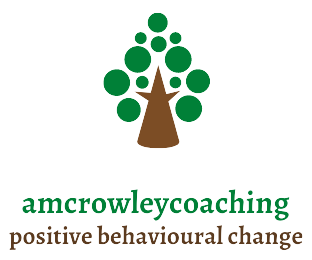Getting a real return on investment for training and development initiatives is not easy, well some bits are easy, but that’s not the whole story….
It is easy enough to write the cheque for the programme, give the participants the time off to attend and wish everyone the best of luck: ‘enjoy the training and when you come back to your desk, the work will be pilling up and you will need to stay late to catch up’. Inevitably, when participants come into work, they will put the hand-outs, action plans and notes away in a drawer, and get back to the way they have always worked. As their boss you will continue to endorse and support the way they have always worked before. Then, when the programme ends, everyone will say they enjoyed it and the bosses will say, right, great, you enjoyed it, but… ‘I see no direct benefit from it in terms of the bottom line to the business. Training is not a good investment of my hard earned money, so no more of that please HR Department’.
This is a very common scenario and often it is those responsible for HR that are hard put upon to come up with complex evaluation processes to prove that the initiatives they implement impact directly on the bottom line of the business. In this pursuit I have travelled many routes over the years including Kirkpatrick, Phillips, Brinkerhoff etc… and while I enjoyed the journey, nothing seems to fully satisfy the need to measure the results against ‘bottom-line’ (not sure really what the ‘bottom line’ is, but you can be assured it is financial). I should have been spending even more of my time understanding business needs, sitting at the top table with other Business Leaders, and ensuring full buy-in and support at that level of the organisation. Successful change starts from the top. When people see that new behaviours and working methods are truly, conscientiously and consistently supported by the people who matter i.e., their immediate managers, they begin to realise their importance at a deep personal level. From there the motivation to make change happen will be sustained long-term.
To help ensure return on investment, learners’ managers will therefore need to:
- Examine their own perspective on the value that the initiative has for the success of the business. For example, if it is people leadership training, they need to realise that knowledge and skill in people leadership contribute directly to business success for many reasons, the main one being that managers cannot do all the work themselves: they have teams through whom they get business results. This is the most common organisational model and for it to be successful, leaders will need to lead and manage people effectively. Or alternatively they could think about a different organisational structure: why have managers at all, make everyone equal with shared equal responsibility throughout: some companies adopt this model with very successful business results.
- Understand the need for the initiative and engage with its objectives and content. Develop an opinion related to the content and pull out examples from their own experience to share with their people and encourage them in their learning.
- Examine the gaps between their people and the content of the programme to establish clearly (ideally in written outcomes) what they expect them to learn or what changes they expect to see implemented. Then, communicate this expectation to the learners before they embark on the learning journey.
- Ensure on-going communication and support for change. During the learning find out how it is progressing and offer support to implement change. Make it easy for people to attend: reallocate resources and directly ensure their attendance. After the programme finishes, ensure the needs were met and the support for transfer of learning is in place. This means being open to new ways of doing things which may require commitment in terms of time away from daily operations. Senior leaders will need to realise that the outcomes from developmental learning may require change of everyone, not just the participants. They need to be open to this if they want return on investment.
- ‘Walk the talk’. For learning to be sustained long-term, participants’ managers will need to ‘walk the talk’ in their own behaviour; in one-on-one meetings; in performance planning and appraisal; by measuring outcomes in reviews, audits and employee surveys. This moves things from ‘talk’ to reality and from there real and longer-term change will happen.
And so, I do not like long complicated evaluation forms nor do I appreciate short ‘happy sheets’. I must say that I was never a fan of Kirkpatrick… however….what I am a fan of is spending some considerable time on needs assessment, so that learning outcomes are clearly identified and agreed upon by all partners to the learning, including sponsors, even if it means that the training is cancelled as it turns out to be the wrong solution. Pity, but rather not do it, than give training a poor name for not producing real tangible and measurable results.
Anne Marie
Anne Marie Crowley, based in Cork, is a free-lance Coach and Trainer in the field of behavioural change for individuals and business.
Anne Marie Crowley is the founder of Crowley Personal and Business Change.


